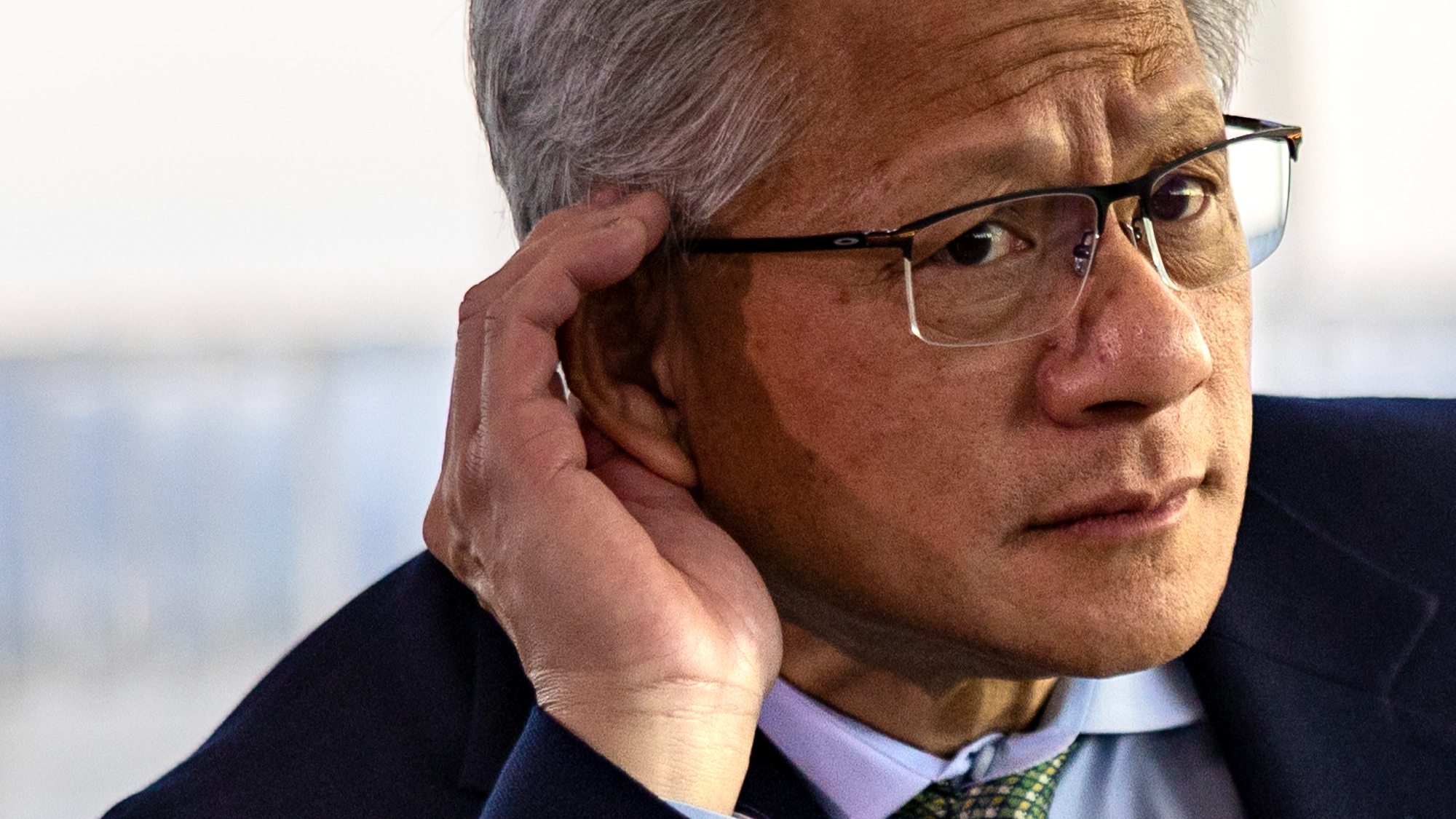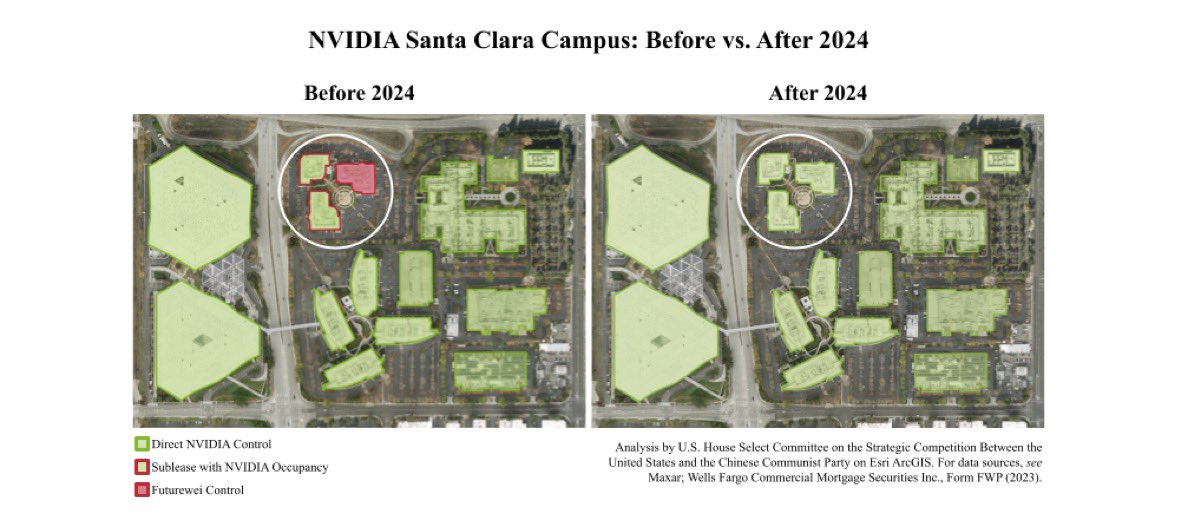US govt committee slams Nvidia over shared campus with banned Huawei affiliate — says China has been in Nvidia’s backyard for a decade, literally
The presence of a Huawei affiliate on Nvidia's campus has prompted some U.S. Representatives to ask questions.

The Select Committee on China of the U.S. House of Representatives has called out Nvidia CEO Jensen Huang, pointing out on X its claims that Nvidia has been sharing its Santa Clara campus with Futurewei, a subsidiary of blacklisted Huawei. The committee has previously demanded that Futurewei reveal details about its connection with Huawei and its American operations, while also pointing out its close proximity to Nvidia’s offices for years. While not directly accusing Nvidia CEO Jensen Huang or Futurewei, the committee highlighted the strategic implications of this co-location. We have reached out to Nvidia for comment.
“Our Select Committee letter earlier this year documented how Nvidia shared a campus with Futurewei, a blacklisted Huawei affiliate,” the committee said in the post. “China may be ‘nanoseconds behind’ in AI, but for years it was in Nvidia’s backyard.” This was made in response to Huang’s comment that “China is going to win the AI race,” and his following statement saying, “As I have long said, China is nanoseconds behind America in AI. It’s vital that America wins by racing ahead and winning developers worldwide.”
Reminder: Our Select Committee letter earlier this year documented how Nvidia shared a campus with Futurewei, a blacklisted Huawei affiliate. China may be “nanoseconds behind” in AI but for years it was in Nvidia’s backyard.https://t.co/81dkMsjvbL https://t.co/OVjBXxDQGe pic.twitter.com/QBUBq9f8HNNovember 6, 2025
According to the letter (PDF) the House Committee sent, Futurewei remains closely linked to Huawei despite distancing itself from the embargoed company on paper. Although it presents itself as an independent U.S. entity, its actions on the global stage allegedly point toward giving its former parent company and Beijing an advantage in global technological standards.
There were also concerns that the company was being used for or directly conducting industrial espionage, with the letter citing a civil case alleging that its employees “register using fake U.S. company names to infiltrate into the meeting, then compiled reports that were transferred to product development, strategies teams, and executives in China” after Huawei was banned from a private telecoms summit hosted by Facebook.

The lawmakers were probably pointing out that Nvidia has been taking advantage of the massive AI demand on both sides of the race, which has helped it become the world's most valuable company by market cap. Members of the federal government want to limit China’s access to American hardware, especially as they think that Beijing uses it for its own technological advancements in both civilian and military applications. On the other hand, Huang thinks the U.S. should let the entire world use its technology — that way, the backbone of global AI infrastructure will be built on American hardware, specifically Nvidia hardware.
There might be some truth to both sides of the argument, but Jensen’s take also benefits his company. After all, if Nvidia supplies most of the data center infrastructure on both sides of the AI race, then it’s a definite win for the AI giant and its investors.

Follow Tom's Hardware on Google News, or add us as a preferred source, to get our latest news, analysis, & reviews in your feeds.
Get Tom's Hardware's best news and in-depth reviews, straight to your inbox.

Jowi Morales is a tech enthusiast with years of experience working in the industry. He’s been writing with several tech publications since 2021, where he’s been interested in tech hardware and consumer electronics.
-
bit_user I don't understand the point of this slide:Reply
I guess they didn't leave after 2024, or this wouldn't be under discussion? Is the point that Futurwei remained in those buildings, even after Nvidia bought the buildings from them? -
blppt I mean, if they can't secure secret technology just because another company is in relative proximity to them, they're doomed to begin with.Reply -
HansSchulze Huawei have been in that building since around the time Nvidia created compute. I remember being outside on our parking building with a few Huawei staff the day the Shuttle was flown over the Bay area. Other than this moment, I've never seen any employees, even when I roller bladed around the campus circumference a number of times.Reply
I think there is a bit too much fear mongering going on. The government folks should concentrate on not losing trillions of dollars in business opportunities. -
hush now The US government should be more focused on the looming economic depression being brought on by the AI bubble, which is 17x (yes you read that right) the size of the dot com bubble and it is due to burst any day now. whatever China is doing doesn't matter when our entire economy is propped up by 10 corporations just sending trillions of dollars back and forth.https://pbs.twimg.com/media/G4NwjurXUAAhAUv?format=jpg&name=smallReply